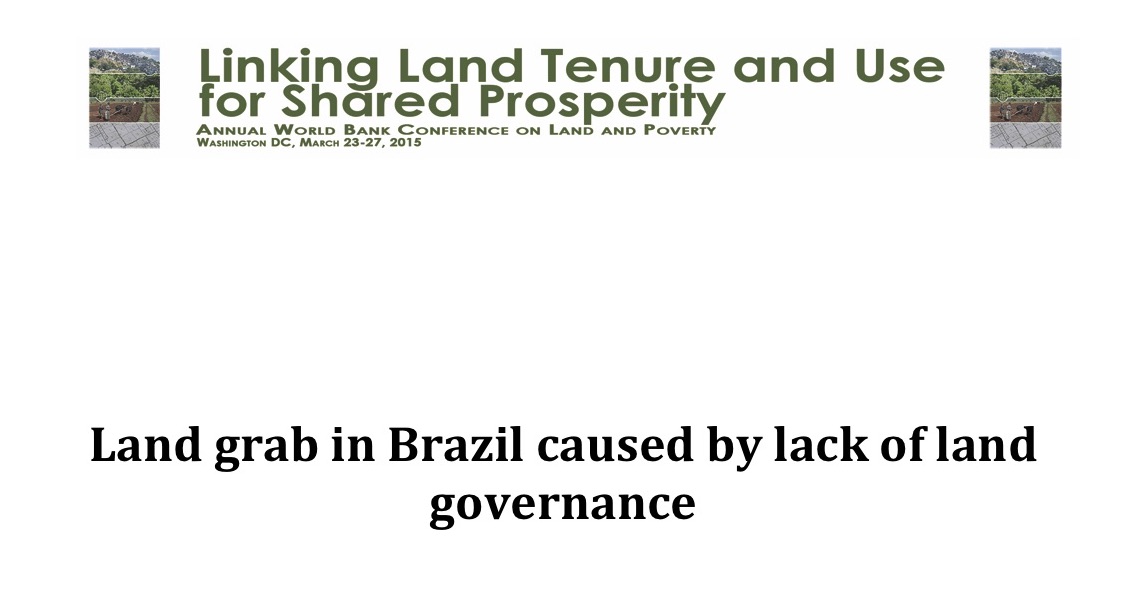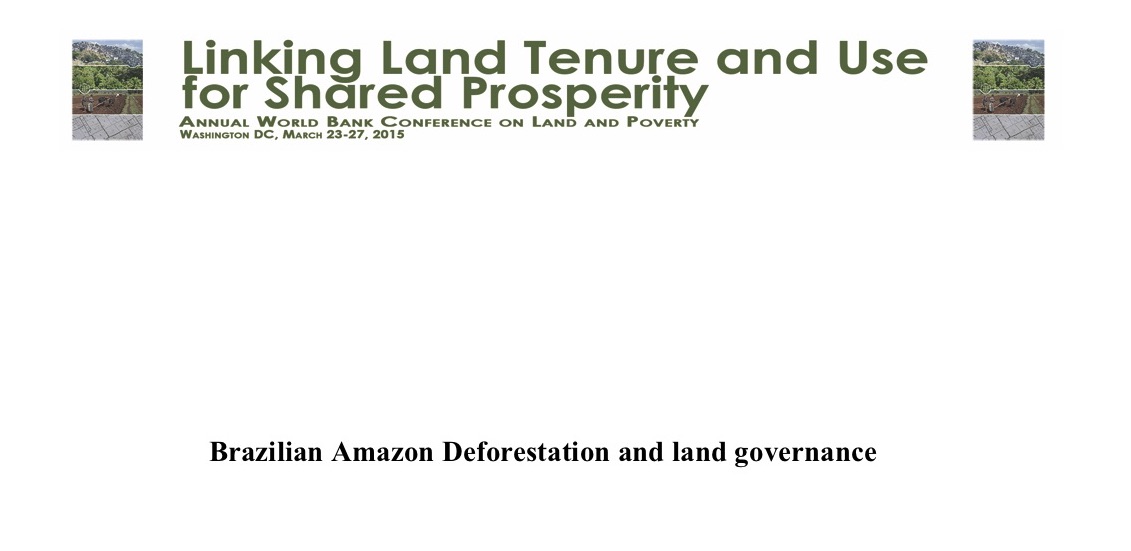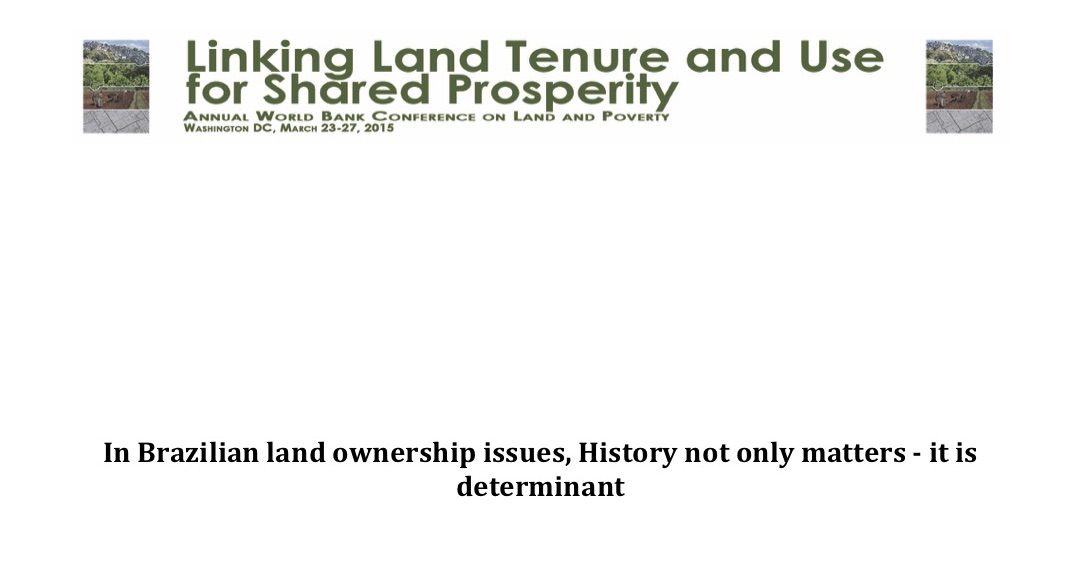Location
Members:
Resources
Displaying 16 - 20 of 39As águas minerais no Brasil: uma análise do mercado e da institucionalidade para uma gestão integrada e sustentável
O presente artigo visa apresentar uma análise geral do mercado de águas minerais no Brasil, envolvendo para isso três considerações importantes: primeiramente analisa-se a estrutura de mercado predominante neste segmento, abordando-se a evolução e principais grupos que compõem o mercado brasileiro de águas minerais; posteriormente faz-se uma breve referência ao quadro legal e institucional sobre as águas minerais; e por fim, analisam-se direcionamentos para uma gestão ambiental integrada e sustentável nesse segmento.
Land grab in Brazil caused by lack of land governance
Brazil has the fifth-largest national land area in the world and this land resource represents a critical asset for the country’s urban, agricultural, and economic development, also providing essential environmental services. Nevertheless, it has a historical lack of governance over its lands, failing to provide secure land rights and to control the extensive frauds resulting in public and private land grabs. The objective of this study is to depict evidence of these land grabs and propose a typology for analyzing them.
Brazilian public land destination: a case study of the Terra Legal federal initiative and the province of Mato Grosso’s Land Institute.
Brazilian Amazon Deforestation and land governance
In Brazilian land ownership issues, History not only matters - it is determinant
From colonial to modern times, Brazilian agricultural property has remained immersed in a chaotic vortex of deregulation. Attempts of institutional reform - such as the Lei de Terras (Land Law) of 1850 - have been largely unsuccessful, whilst providing legal grounds for land grab by large estates and narrowing the scope of possibilities open for legitimate reevaluations of the first institutional landmark on land use and ownership in the country - the sesmarias.






